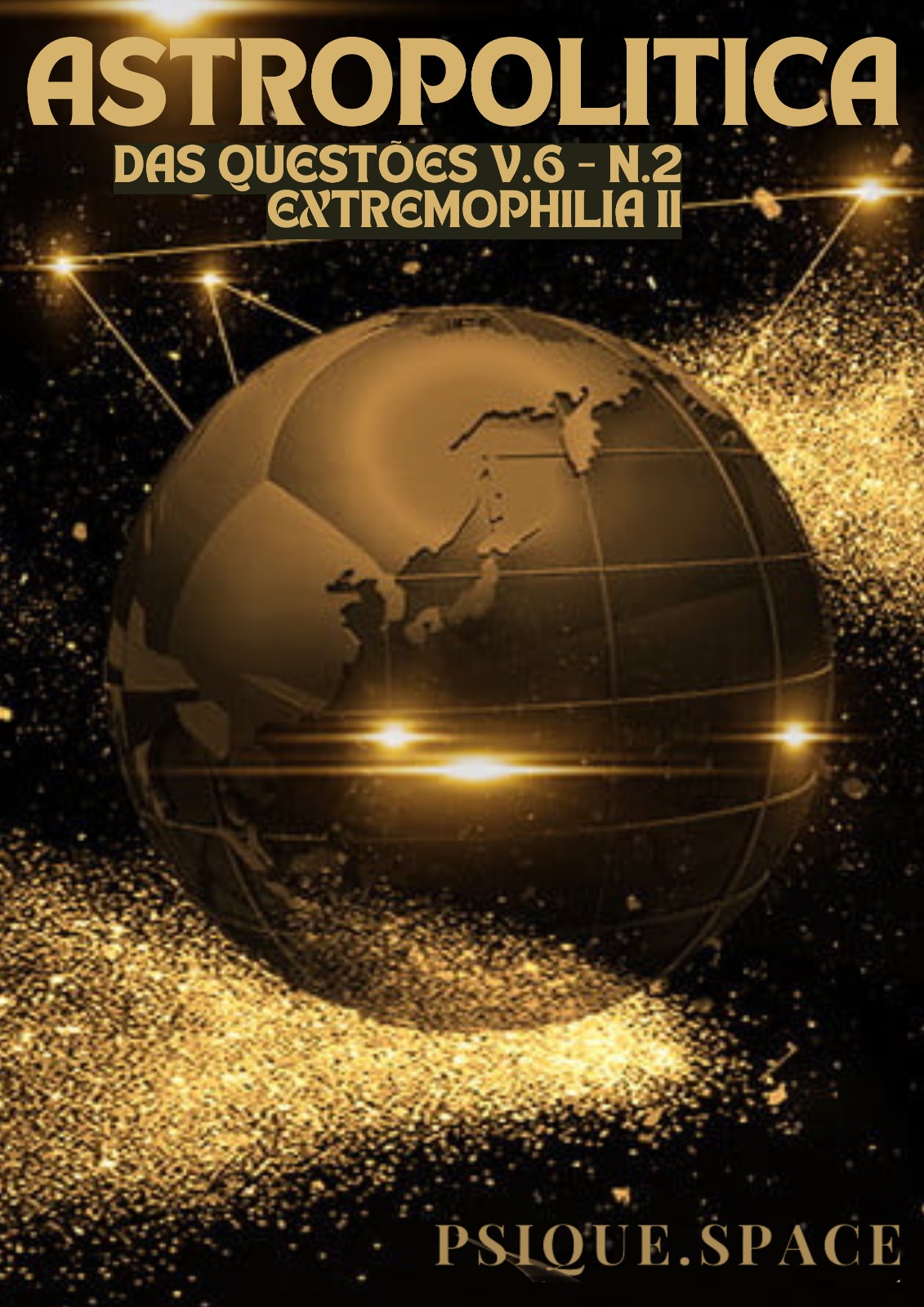CONSIDERAÇÕES ONTOLÓGICAS EM FILOSOFIA DA ASTROPOLÍTICA
Main Article Content
Abstract
No interior das discussões contemporâneas em astropolítica, há um pequeno grupo de defensores da chamada exopolítica. Este texto - sobre assuntos ontológicos em filosofia da astropolítica - avalia fundamentos conceituais em dois encaminhamentos vigentes em teorias exopolíticas. Para isso, leva-se em conta um ambiente mais abrangente fornecido por aspectos relacionados às investigações em astrobiologia teórica
Downloads
Article Details

This work is licensed under a Creative Commons Attribution-NonCommercial 4.0 International License.
Authors who publish in this journal agree to the following terms:
Authors maintain the copyright and grant the journal the right of first publication, the work being simultaneously licensed under the Creative Commons Attribution License which allows the sharing of the work with recognition of the authorship of the work and initial publication in this journal.
Authors are authorized to take additional contracts separately, for non-exclusive distribution of the version of the work published in this journal (eg publish in institutional repository or as a book chapter), with acknowledgment of authorship and initial publication in this journal.
Authors are allowed and encouraged to publish and distribute their work online (eg in institutional repositories or on their personal page) at any point before or during the editorial process, as this can generate productive changes as well as increase the impact and the citation of the published work.
References
BALL, J.A. The Zoo hypothesis. Icarus 19, 347–349, 1973.
BAXTER, S. The Planetarium Hypothesis: A Resolution of the Fermi Paradox. Journal of the British Interplanetary Society, 54(1), 210-216, 2001.
BÉZIAU, J-Y. Ruth Barcan Marcus est-elle la mère du fils de Wittgenstein? (Considérations existentialistes sur la formule de Barcan). Manuscrito, 22(2), 11-27, 1999.
BRACEWELL, R. The Galactic Club: Intelligent Life in Outer Space. San Francisco: San Francisco Book Company, 1976.
BRACEY, E. N. Toward a Theory of Political Science and the Future of Exopolitics. Language, Education and Culture Research, 3(1), 1-23, 2023.
ĆIRKOVIĆ, M. Kardashev’s classification at 50+: a fine vehicle with room for improvement. Serbian Astronomical Journal, 191, 1-15, 2015.
CLARKE, A. O fim da infância. Tradução de Carlos Angelo. São Paulo: Aleph, 2019.
COSTA-LEITE, A. O Problema das Justificações Parciais. Revista de Filosofia Moderna e Contemporânea, 6(2), 95-104, 2018;
COSTA-LEITE, A. Formalizing the Fermi paradox and combining consistent explanatory hypotheses. International Journal of Astrobiology, 22(2), 111-117, 2023;
COSTA-LEITE, A. Universal Logic and Orbital Relativism. In: Madigan, T.J.; Béziau, J-Y. (eds) Universal Logic, Ethics, and Truth. Studies in Universal Logic. Basel: Birkhäuser, Cham, 83-94, 2024;
FOGG, M. J. Temporal Aspects of the Interaction among the First Galactic Civilizations: The “Interdict Hypothesis”, Icarus, 69, 370-384, 1987.
HYNEK, J. A. The UFO Experience: a scientific inquiry. Chicago: Henry Regnery Company, 1972.
KARDASHEV, N. S. Transmission of information by extraterrestrial civilizations. Soviet Astronomy, 8(2), 217-221, 1964.
LIU, C. O problema dos três corpos. Tradução de Leonardo Alves. Rio de Janeiro: Suma, 2016.
LIU, C. A floresta sombria. Tradução de Leonardo Alves. Rio de Janeiro: Suma, 2017.
LIU, C. O fim da morte. Tradução de Leonardo Alves. Rio de Janeiro: Suma, 2019.
OBERHAUS, D. Extraterrestrial languages. Cambridge: The MIT Press, 2019.
QUINE, W. V. O. On What There Is. The Review of Metaphysics, 2(5), 21-38, 1948.
SALLA, M. Exopolitics: discipline of choice for public policy issues. World Affairs: The Journal of International Issues , 12 (2), 114-129, 2008.
SALLA, M. Astropolitics and the “Exopolitics” of Unacknowledged Activities in Outer Space, Astropolitics: The International Journal of Space Politics & Policy, 12(1), 95-105, 2014.
SZOCIK K, Abylkasymova R. If extraterrestrial intelligence exists, it is unable to recognize humans as intelligent beings. International Journal of Astrobiology, 21(6), 462-468, 2022.
WEBRE, A. L. A New Science For A Positive Human Future. World Affairs: The Journal of International Issues , 12(2), 130-152, 2008.

